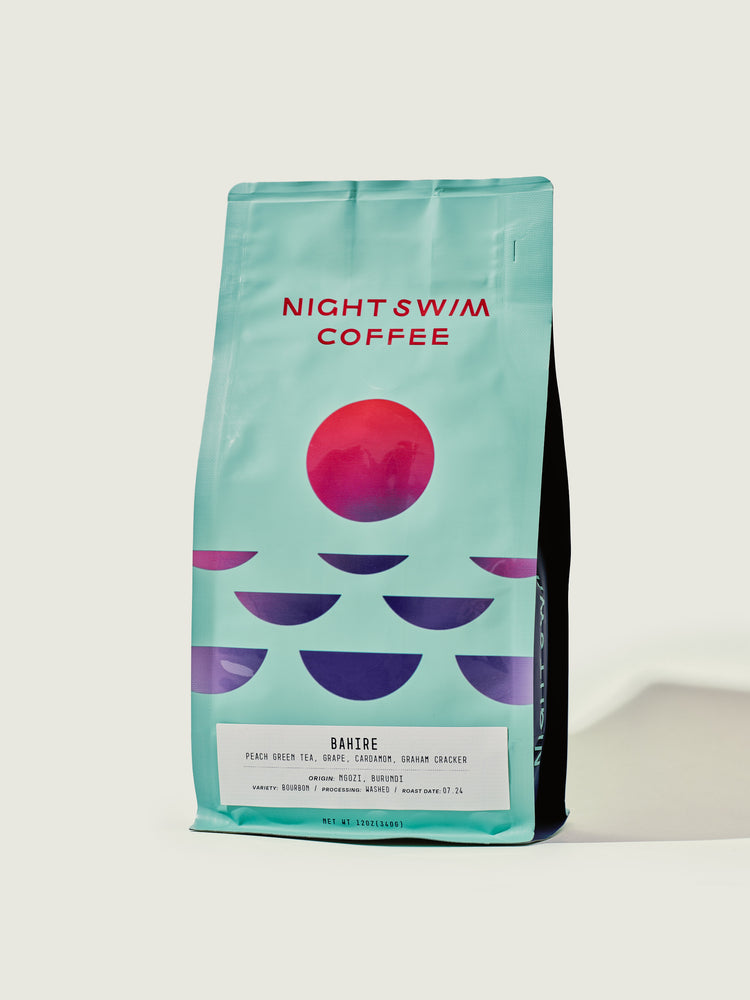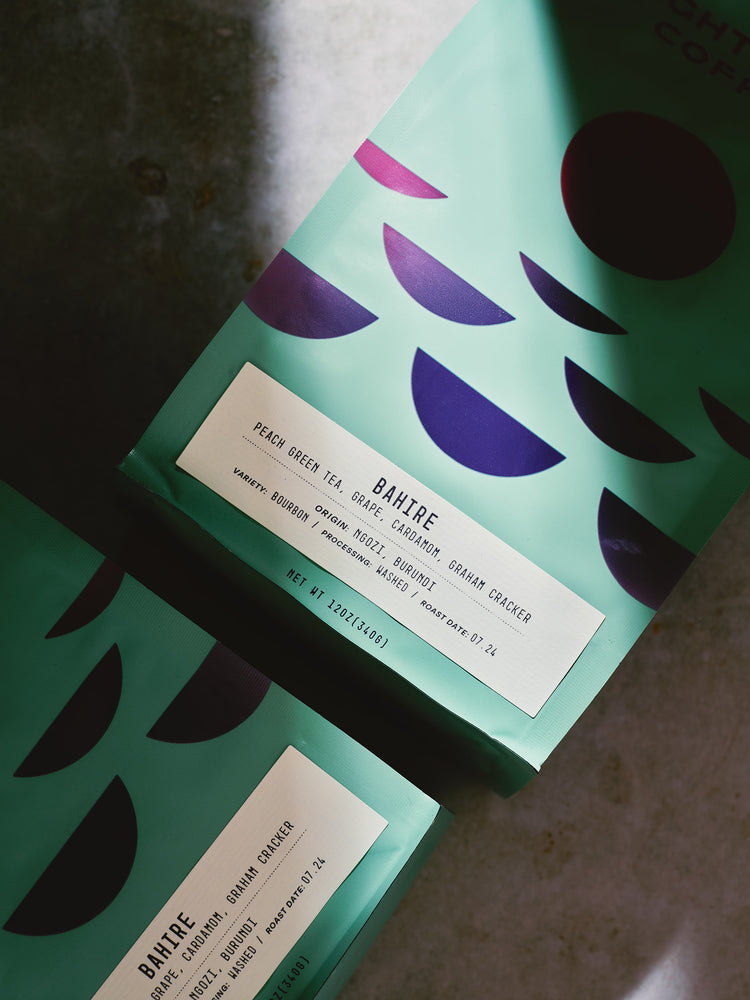The Roastery & Cafe
Mon-Fri: 7-5
Sat-Sun: 8-4
Night Swim Coffee
Couldn't load pickup availability
COMMUNITY: Bahire
LOCATION: Ngozi, Burundi
ALTITUDE: 1800 MASL
VARIETY: Bourbon
PROCESSES: Washed
We Taste: Peach Green Tea, Grape, Cardamom, Graham Cracker
JNP Coffee sources exceptional coffees grown in the mountains of Burundi that are notable for their pleasant brightness, and fruit and floral characteristics. About the size of Maryland, Burundi is a small landlocked country in the Great Lakes region of East Africa, bordered by Tanzania, Rwanda, Democratic Republic of Congo and Lake Tanganyika. Its population of 13.5 million makes it one of the most densely populated countries in the world.
Some 90 percent of Burundi’s workers are in agriculture. Coffee is the country’s largest export crop and the source of foreign currency. More than half the population lives below the poverty line. Burundi has plenty of regions with favorable conditions for coffee production. The altitudes range from 772 meters above sea level (masl) to 2,670 masl at Mount Heha’s summit. Burundian coffee is usually grown at high altitudes between 1,200 and 1,950 masl.
Burundi is located in a mountainous area of Africa, forming part of the Albertine Rift in the Great Rift Valley. The country's nutrient-rich volcanic soil and high rainfall levels of approximately 1,200 mm per year also contribute to Burundian coffee’s distinct, intense fruit flavors and syrupy sweetness-Burundi coffee features flavor experiences like fruit punch, bright acidity, lingering candy-like finishes, expressiveness, and juiciness, with tropical notes.
Coffee trees were first introduced to Burundi in the 1930s by the Belgians. Initially, farmers were provided with seedlings and compelled to cultivate them with minimal support. In 1962, following the end of Belgian rule, Burundi’s coffee sector was privatized. Ten years later, the government began managing the industry to centralize operations. Many farmers abandoned their coffee farms, but some recognized the crop’s economic potential and continued to care for their trees.
Coffee soon became vital to Burundi’s economy until the civil war in the 1990s caused a significant decline in production. After the conflict ended in the early 2000s, coffee was re-established as a crucial agricultural export. At the beginning of the 21st century, the government started gradually privatizing parts of the coffee supply chain, leading to increased investment. Today, coffee constitutes more than 80% of the country’s exports.
The backbone of Burundi's coffee industry is its smallholder farmers, numbering over 800,000. Across the country, more than 25 million coffee trees are now planted on approximately 60,000 hectares.
For years, JNP noted that there was one coffee from Ngozi Province that consistently scored higher than all the others from this region. Given their founder’s kinship with the area – after all, her mother was born and raised there – they set out to track down that prized source. It took some work, but they finally found the hill where this special coffee grows. The differentiation that terroir can make in coffee is astounding! JNP Coffee now works with the farmers of Bahire Coffee. In Kirundi, Bahire means “be well.”


